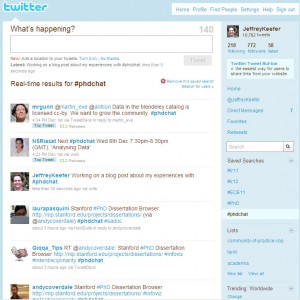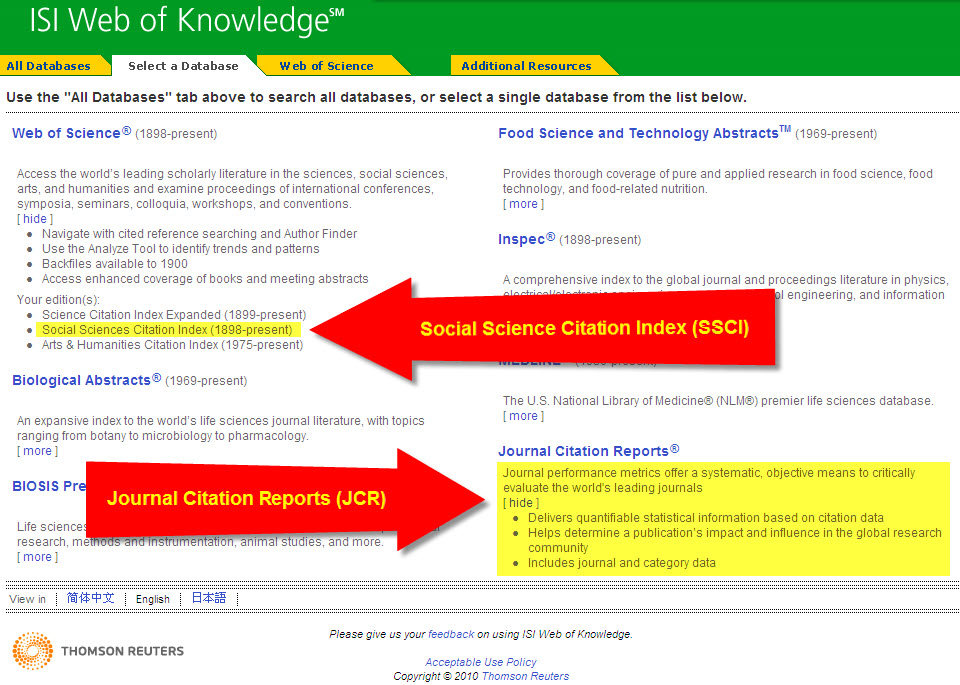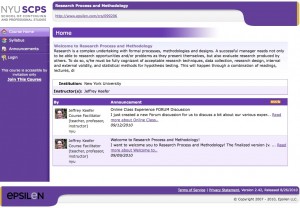 I often find it easier to study the experience and process of doctoral studies (from both student and faculty perspectives) than to speak with people about my own doctoral work. One reason for this is that I often feel I am working alone, without a community of people who are doing similar or related work.
I often find it easier to study the experience and process of doctoral studies (from both student and faculty perspectives) than to speak with people about my own doctoral work. One reason for this is that I often feel I am working alone, without a community of people who are doing similar or related work.
With this background shared, I am thrilled with the recent synchronous (on Wednesdays at 2:30 EST / 7:30 GMT) and ongoing asynchronous (it is Twitter, after all) phd-related chats using the tag #phdchat that have recently started to attract more attention. Do I hear interdisciplinary community of practice, anyone?
Support. Sharing. Ideas. Potential collaboration. New applications. Calls for papers. Conferences. Community. I suppose many people may be involved in this loose collaboration for many reasons (thank you @NSRiazat for getting this started), though I now feel I have more colleagues (and know more about some of these colleagues who I knew before) as a result of this experience. No, I have no idea where it will lead, how it will develop, and who else may or may not become involved for whatever period of time. This is somehow fitting that while so much of my research is from a distance, my community should be like that as well.
Nice to know that I am not alone on this road and others on this path are only a Tweet away.


